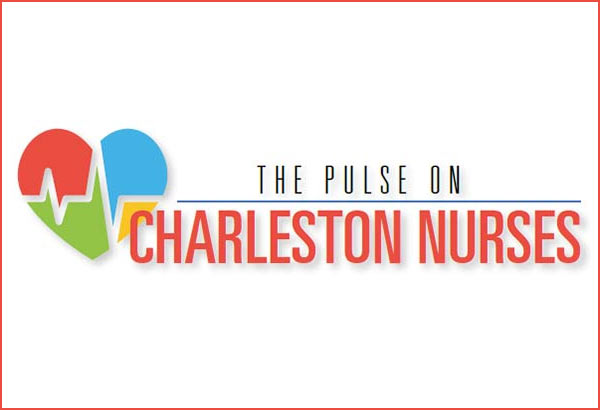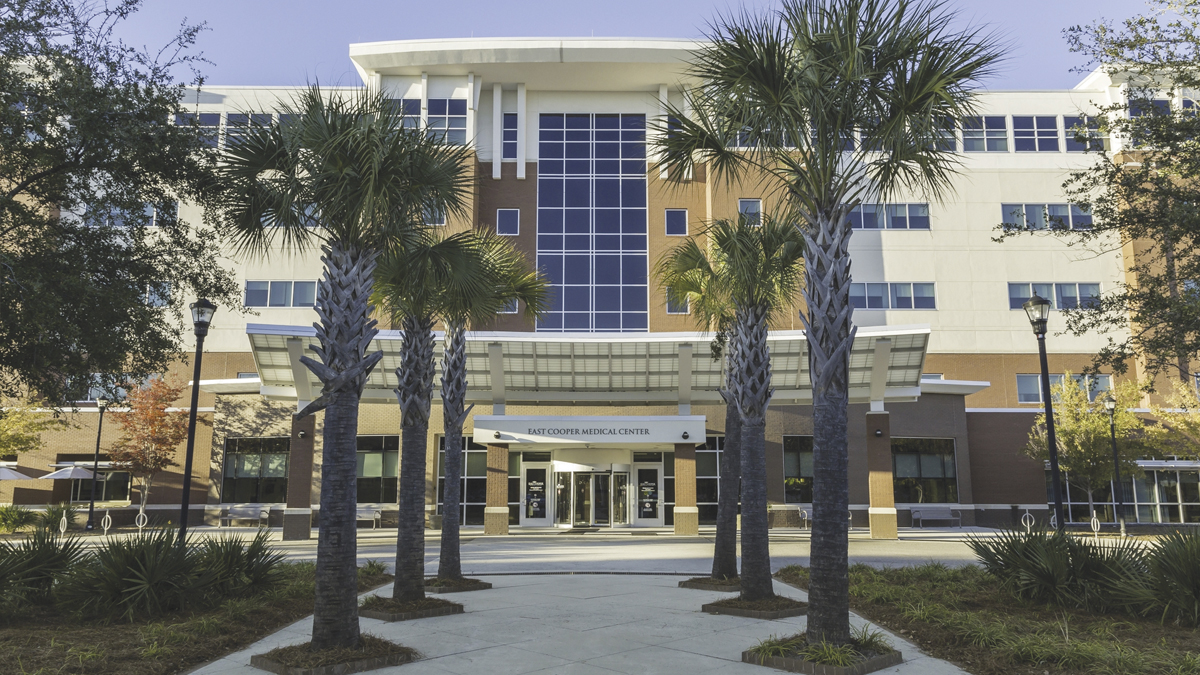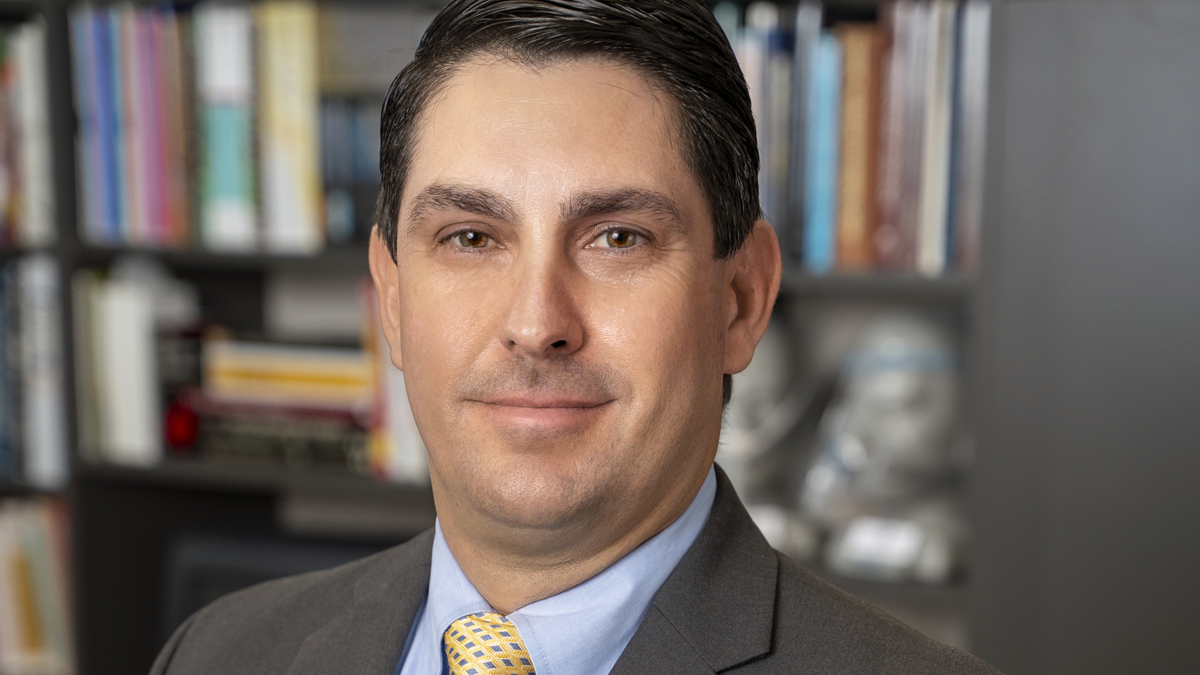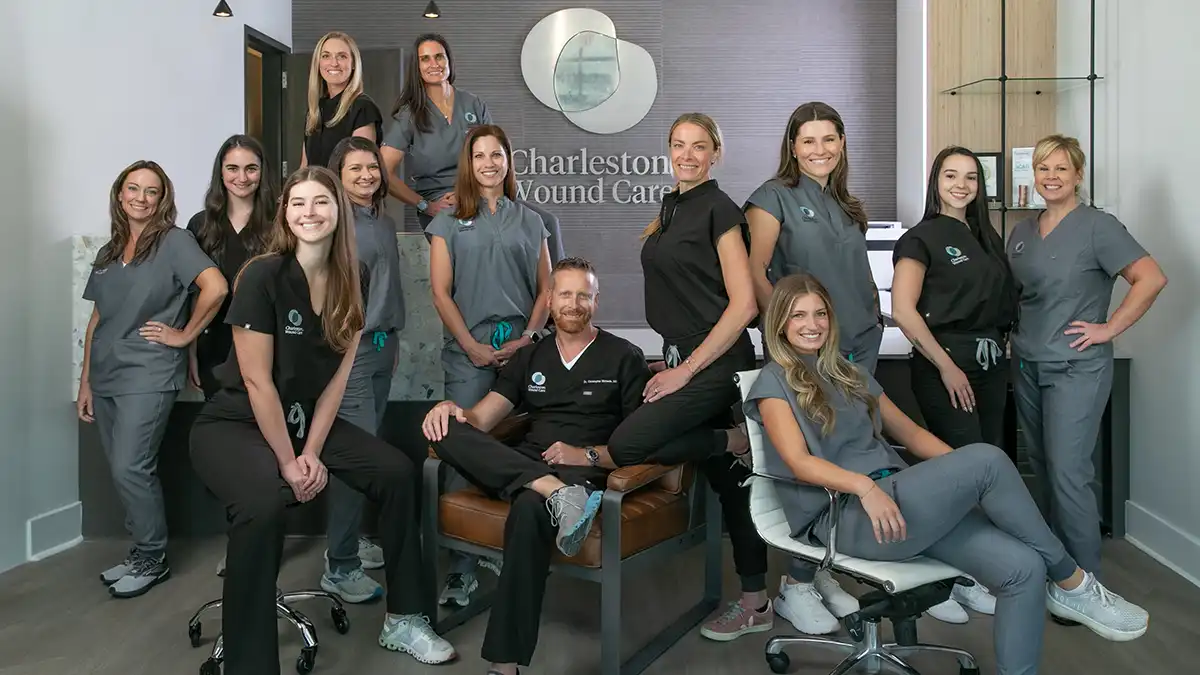
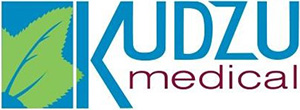 We have partnered with KUDZU MEDICAL to highlight some of the Lowcountry’s top nurses. HealthLinks Charleston wants to recognize nurses as the backbone of our medical community and thank them for all their efforts!
We have partnered with KUDZU MEDICAL to highlight some of the Lowcountry’s top nurses. HealthLinks Charleston wants to recognize nurses as the backbone of our medical community and thank them for all their efforts!
2021 Pulse on Charleston Nurses
Jan/Feb 2021
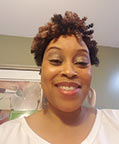 CIELITA K. HALYARD, MSN, FNP-C
CIELITA K. HALYARD, MSN, FNP-C
Nursing was a goal for Cielita K. Halyard since high school. She actually knew at that time that she wanted to be a nurse practitioner but decided to work as a nurse first before pursuing her masters degree. For 10 years, Halyard worked as a bedside nurse and then finally obtained her MSN. Her specialty of choice was family practice/ primary care.
“I get bored very easily and thrive on variety,” she said. “Therefore I knew family practice/primary care would be the best fit for me.”
Now with Palmetto Primary Care Physicians, she hasn’t looked back.
“It doesn’t matter how you start the race; it only matters how you finish. Therefore, don’t let anything or anyone deter you from pursuing your goal,” she said.
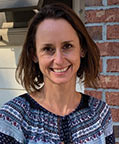 ESTEE PERLMUTTER, FNP-BC
ESTEE PERLMUTTER, FNP-BC
Estee Perlmutter grew up with parents who were both teachers, so when it came to choosing a profession, she knew it would be one that gave back to the community in some way.
She has worked in both hospice and med/surg, but what she ended up specializing in was family practice. Now, as a family nurse practitioner with Liberty Doctors, she feels right at home.
“I love working in family practice because it allows me to treat patients of all ages with a variety of health concerns. I may treat a person with congestive heart failure and diabetes followed by a person with a poison ivy outbreak,” she attested.
She loves the opportunities she has been afforded with a career in nursing: “I’ve lived in many different cities and have always been fortunate to find work.”
Ultimately, her love for nursing lies with helping people.
“My goal is to help people feel well and live the life they would like to live,” she said.
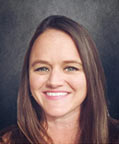 SANDY JONES, AGACNP
SANDY JONES, AGACNP
It was a commercial on TV that piqued Sandy Jones’ interest in nursing. She saw a nurse caring for crying babies and thought that might be something she would like to do. Once she graduated from nursing school, she had a hard time finding a job and, as fate would have it, she started working in trauma.
Jones eventually moved from trauma into ICU, which is where she is now at Roper St. Francis Healthcare, and has never looked back.
“I am obsessed with critical care,” she said. “I can’t imagine doing anything else at this point.”
What she loves about nursing is the variety: “If you decide you don’t like one area, you can find a different specialty that better fits your lifestyle and personality.”
Her advice to other nurses: “There will always be hard days, but the good days are so good. We are experiencing such trying times, but it won’t be like this forever. Keep your head up and keep saving lives because this is what we were made to do.”
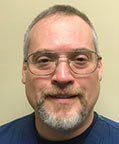 JOSEPH TREVINO, RN, BSN
JOSEPH TREVINO, RN, BSN
As a primary care nurse care manager at the Goose Creek VA Outpatient Clinic, which is a part of the Ralph H. Johnson VA Medical Center, Joseph Trevino said he really enjoys having the opportunity to help veterans maintain their overall health, rather than just focusing on treating the specific problem for which they are admitted.
“Having worked in multiple inpatient settings, primary care was a nice transition,” he said.
He now looks to the future and hopes to one day move into a role of educating future nurses.
“My advice to new nurses is to find a mentor who can guide you and help you recognize your own blind spots,” he said.
2020 Pulse on Charleston Nurses
Nov/Dec 2020
 BARRETT WALTON, RN
BARRETT WALTON, RN
Barrett Walton knew that the health care field was for him but wasn’t so sure about nursing. But, after just a few courses in college, he fell in love with every aspect of nursing and is now working in the progressive care unit at East Cooper Medical Center. New to the field, Walton is one of the youngest nurses in the department and strives to learn from his team every day.
“Everyone here is really great to work with. I was welcomed with open arms, and it’s so nice to have that,” he said.
His advice for anyone thinking about becoming a nurse: “It’s not easy, but you learn something new every day and that makes it really exciting.”
Barrett has resided in the Lowcountry his whole life and enjoys every aspect of living here, including spending time on his boat and being active outdoors.
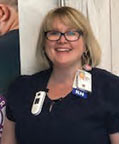 NICOLE MOSLEY, BSN, RN
NICOLE MOSLEY, BSN, RN
Nicole Mosley credits her upbringing in a military family with her passion for giving back to the men and women who serve our country. Now as an assistant nurse manager for the Ralph H. Johnson VA Medical Center’s Savannah Community Based Outpatient Clinic, Mosley said she is proud of the work the VA has done during this unprecedented time.
“We have done a great job caring for the veterans, especially making sure they have access to care even if it is not face-to-face,” she said.
Mosley said the VA’s telehealth services have been successful: “We have been creative with care utilizing video and telephone appointments to keep veterans and our employees safe.”
She concluded, “Being a nurse is not just a job or career. It is who you are. Loving what you do shows in the care you provide to your patients. Patients put their trust in you. Don’t ever lose focus of that.”
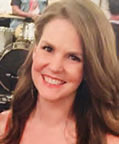 KORI FRANK, MSN, ARNP, FNP-C
KORI FRANK, MSN, ARNP, FNP-C
Kori Frank graduated from Jacksonville University with a bachelor of science degree in nursing and then worked for 10 years as a nurse before pursuing her master’s in nursing from the University of South Carolina. She is now a nurse practitioner with Palmetto Primary Care Physicians in family medicine. “I chose the primary care setting as it enables me to prevent disease and educate my patients on how to live healthier lifestyles, which is one of my passions. I love family medicine particularly because I am able to take care of mom, dad, brother, baby and the grandparents. This in turn helps me take better care of the patient as a whole. I really get to know these people. They are like family at the end of the day,” she said.
Her advice to anyone wanting to pursue a career in nursing: “Never stop learning, and always ask questions. This field, no matter what specialty you are in, will require lifelong learning, as guidelines change day to day.”
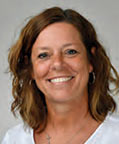 SHERRI JONES, MSN, RN, CNOR
SHERRI JONES, MSN, RN, CNOR
It was a doctor Sherri Jones met while at the College of Charleston that encouraged her to pursue nursing.
“I have always loved helping and taking care of people,” she said.
And, as for her specialty in the operating room: “It was during my rotation in nursing school that I fell in love with OR nursing.”
Now she is chief nurse of the Ralph H. Johnson VA Medical Center’s operative services.
“I started my nursing career as an LPN, and, after eight years, decided to go back to school. I continue to see the value that education has played in my development.”
She concluded: “Being a nurse offers you an opportunity to make a difference in the lives of others, and this will bring you more joy than you can imagine.”
Sep/Oct 2020
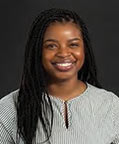 KHAILIALIAH YATES, RN, ADN
KHAILIALIAH YATES, RN, ADN
The most rewarding part of being a pediatric intensive care unit nurse at the MUSC Shawn Jenkins Children’s Hospital for Khailialiah Yates is being able to bring joy, light and hope to the children and the families that she cares for in probably what is the toughest time of their lives.
“I was working as a tech in the PICU when I decided to go to nursing school. I saw the care and compassion that the nurses showed the patients. I immediately went into nursing school, and now I get to do that,” she said.
She admitted that being a critical care nurse during a pandemic has been challenging in many ways but that she wouldn’t change it for anything.
“I love what I do and am grateful I get to do it,” she remarked.
She doesn’t take herself too seriously and she advises other nurses to do the same.
“It is OK to have fun in your job,” she said.
Yates is currently working on her BSN and aspires to obtain her CCRN and ACNP.
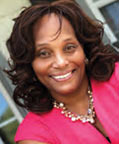 RICHETTA DEAS, MSN, APRN, ANP-BC
RICHETTA DEAS, MSN, APRN, ANP-BC
It was the painful death of Richetta Deas’ grandmother when she was just 7 years old that made her want to go into nursing.
“My grandmother – my angel – who gave me so much of the little she had, succumbed to a malignant tumor in her stomach that was deemed inoperable. She died alone in a nursing home. I wanted to take care of her myself, and I was only 7 years old,” she remembered.
But that experience inspired her. She is now an adult nurse practitioner with Fetter Health Care Network.
Her advice to new nurses is to “listen to your patients. They are an invaluable resource, and you will learn from each one. Passing clinicals, grand rounds, boards – that is the easy part.”
She also said, “Don’t let the money or job security be the primary reason you become a nurse. Chances are you will fail. This profession is for the soldiers of heart, and you must be alert and ready at all times.”
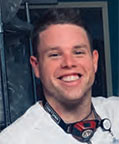 TANNER WHITSON, BSN, RN
TANNER WHITSON, BSN, RN
Tanner Whitson can directly relate to his patients at the MUSC Shawn Jenkins Children’s Hospital. From the ages 4 to 14, he had seven major surgeries related to ulcerative colitis with 12 different hospital stays ranging from two or three days to sometimes several weeks at a time. When he was 11, he was diagnosed with type 1 diabetes, and, in 2017, he was diagnosed with Crohn’s disease.
Now at age 24, he said he is happy to be living actively and achieving the goals and dreams he always wanted to.
“I chose to work in pediatric intensive care unit because I spent most of my childhood in one of those beds, and now I have the opportunity to show these kids that they can achieve anything they want to in life despite the circumstances they are given,” he said.
He advises new nurses to be “present” with their patients.
“The 12 hours of your shift might just be another 12 hours to you, but, to patients and their families, that could be the most terrifying, scary, uncertain 12 hours of their life. This gives us an opportunity as nurses to really be there for the patient and their family in these fearful times.”
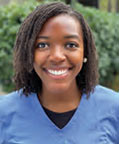 ASHLEY DOCTOR, RN
ASHLEY DOCTOR, RN
When Ashley Doctor was growing up, caring for others came naturally.
“I had a love for science, and I was always trying to figure out why things worked the way they worked,” she said.
But when Doctor started helping her grandmother care for her grandfather, she knew this was a calling in life.
“I honestly can say I enjoy helping and serving others,” she explained.
Now as an orthopedic service line navigator at Trident Medical Center, she wants aspiring nurses to know that every experience will shape them.
“Soak up all you can in school and capitalize on every experience. Every situation that you might think is against you is going to help you in some way,” she said.
She personally has always taken the advice of John Maxwell, an American author, speaker and pastor, who said, “Always remember to never stop growing. If we’re growing, we’re always going to be out of our comfort zone.”
Jul/Aug 2020
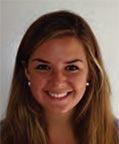 AMBER RYAN, RN, BSN
AMBER RYAN, RN, BSN
Amber Ryan remembers setting up a doctor’s office for her father, a stonemason, when he would return home with cuts and bruises after a hard day’s work.
“I would clean him up and bandage his wounds,” she said.
But as a freshman in college, she started taking classes in early childhood education.
“I’ll admit guts and gore deterred me from becoming a nurse at first,” she explained.
When her grandfather got sick, she said she always remembered how his face lit up when he spoke about the nurses who made his hospital stays better.
“I knew that I wanted to do this for others. I wanted to make a difference in people’s lives the way those nurses did for my grandpa,” she explained.
She is now working in the pediatric intensive care unit at the MUSC Shawn Jenkins Children’s Hospital.
Her advice to aspiring nurses: “Make the most of every experience, and follow your own path to becoming a nurse. I work with so many health care professionals in different fields that feel discouraged they aren’t where they expected themselves to be. We all get there eventually, so use every step along the way as an experience to grow from.”
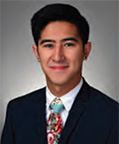 TRERVOR PHAM, RN
TRERVOR PHAM, RN
Trervor Pham said he has his wife to thank for encouraging him to become a nurse. “She happens to be an RN as well. She said I had the perfect personality for a nurse, so I gave it a chance. ”Now in med-surge at the Ralph H. Johnson VA Medical Center, he said he is glad he took that chance because, “nursing has been one of the most fulfilling things I have ever done.”
He said he enjoys med-surge because he likes caring for veterans as they come out of complex surgeries.
“Med-surge is also helping me to build upon my foundation as I work to critical care,” he said.
He concluded: “Nursing school is tough and the job is demanding. There will be times that you may feel like giving up. If you persevere and stick with it, nursing will be one of the most rewarding things you ever do. Being able to say you made a difference in a patient’s life is beyond amazing.”
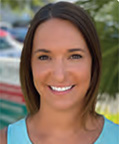 KIM LOWMILLER, RN
KIM LOWMILLER, RN
As the patient care coordinator in the Emergency Department at Trident Medical Center, Kim Lowmiller thrives in a fast-paced environment. And, really, it is all she knows. She holds an associate degree in fire science from Western Iowa Tech and a BSN from the University of South Dakota.
After college, she worked as a firefighter/paramedic in South Dakota. “I loved the emergency aspect of it,” she admitted.
When she went back to school for nursing, she knew the ER was where she wanted to be. But it all started when she was 15 and witnessed her grandmother having a stroke.
“I hated that I didn’t know what to do to help her,” Kim explained. She said her favorite part of working in the ER is the teamwork displayed among staff.“
Trident Medical Center Emergency Department’s level of teamwork rivals anything I have seen before. I truly feel so lucky to work with such an amazing team.”
She advised new nurses to “be passionate about learning and just try to become a better nurse every day, and you will succeed.”
 KELLY SMITH, RN
KELLY SMITH, RN
For 10 years, Kelly Smith worked at Cypress Gardens as an animal care specialist/zookeeper.
“I never knew I wanted to be a nurse. We lived on a farm and my mom was a rehabber for sick, orphaned and injured animals of all kinds, from snakes to squirrels. I was born, or so I thought, to be in the biology field and take care of animals for the rest of my life.”
She said she heard her calling when her grandfather died of prostate cancer.
She explained: “We had no nurses in the family, no one to help him understand his options. He died from what is usually a slow growing cancer that is managed long-term. I heard God loud and clear on that day. Be a nurse, he said.”
She did not immediately answer the call, but, at the urging of some of her friends, she went back to school.
“During my oncology rotation, I felt a pull like never before and never looked back,” she said.
She now works as an oncology nurse at Trident Medical Center. “I work with some of the best people I know. Teamwork, hard work and strong shoulders for the tough times are what I get every day,” Kelly said.
May/Jun 2020
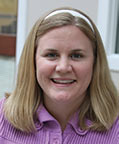 TANYA LOTT, DNP, RN-BC
TANYA LOTT, DNP, RN-BC
When Tanya Lott was only 11 years old, she contracted bacterial meningitis and spent a week in the children’s hospital at MUSC. It was that experience that began her love for nursing.
“I remember having student nurses who took me to the atrium to color and helped me with my schoolwork. It was the first time I had thought about health care as a career,” she said.
Her original thought was pediatrics, but, in nursing school, she found that the neonatal rotation was her favorite. She was hired after graduation from Charleston Southern University at Bon Secours St. Francis Hospital in the newborn nursery. After completing her master’s degree, she became an education specialist in the Roper St. Francis Healthcare professional development department and a clinical instructor at Charleston Southern University. She recently completed her doctoral degree in executive leadership at the University of South Carolina.
In her current role of Magnet Program director, she helped to lead Bon Secours St. Francis Hospital to the American Nurses Credentialing Center Magnet designation in 2010, 2015 and now in 2020.
“My current role blends all of my favorite roles in nursing – teaching, mentoring, leading, pursuing the constant journey toward excellence and providing direct care nurses with the support and resources they need to deliver amazing nursing care,” Lott said.
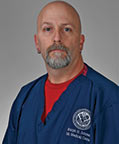 JARROD BURNSIDE, BSN
JARROD BURNSIDE, BSN
It was a job in high school at a long-term care facility that began Jarrod Burnside’s interest in nursing. Back then, he was assisting the residents in activities, but he enjoyed helping and caring for the residents so much that after graduating from high school, he joined the military, where he honed his skills as a medic. Now as a nurse at the Ralph H. Johnson VA Medical Center, he said that of all the different jobs he has had in nursing, working with veterans has been the most rewarding.
He believes nurses should work for six months as nursing assistants before entering nursing school and that they should work the floor they aspire to for a year before entering into the field.
“Nursing really is about the patient as a whole; it isn’t just about the medical aspect,” Burnside said. “Many veterans come to our facility for emotional support. They want that connection with other people, and many show up without an appointment. They just want to talk to someone else who can relate.”
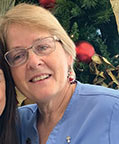 KATE KIEL, RN
KATE KIEL, RN
As a recent recipient of the Daisy Award at East Cooper Medical Center, Kate Kiel is known for going above and beyond the call of duty as a registered nurse in the hospital’s Outpatient Infusion Clinic.
She won the award after being nominated by the daughter of a patient who said that Kiel would sing to him during his blood transfusions. The nomination read, “There are very few Kates in this world, and my dad was lucky to have her in his life during his last living months. Kate will be in my heart and my dad’s forever.”
The Daisy Award honors nurses who demonstrate clinical excellence in a caring and compassionate manor.
Keil said she knew she wanted to be a nurse since she was 5 years old. Later, as a teenager, she worked in a nursing home as a nurse’s aide.
“I enjoyed my job as an aide as I simply loved the older folks,” she said.
Her advice to aspiring nurses is, “Make a difference in everything you do for our patients. Be a good role model, stay positive, support each other and remember that the expert was once a beginner, too.”
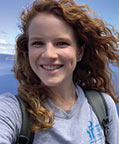 KELSEY WHITSON, BSN, RN, CCRN
KELSEY WHITSON, BSN, RN, CCRN
Kelsey Whitson said that when she tells someone she is a pediatric critical care nurse at the MUSC Shawn Jenkins Children’s Hospital, the typical response is, “There is no way I could do what you do. It’s just so sad.”
But Whitson’s quick response is always, “While there are sad stories, I am drawn to pediatrics because of the good stories. The resilience of children is incredible, and it provides a renewed sense of hope after every shift. The kids and their families are fighters, and I consider it an honor to be a part of their story.”
She noted that the beauty of nursing is all the different avenues that can be pursued: “Everyone has different talents and interests. Find your interest, and you will find an area of nursing that aligns with it.”
She concluded, “In the midst of the current pandemic, health care workers are being recognized as the heroes. While I am grateful for the recognition, I hope that when life goes back to normal, our community does not forget the role we play. We were heroes before, we are heroes now and we will continue to be heroes as time moves on.”
Mar/Apr 2020
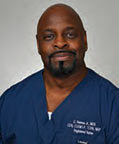 CHARLES L. REEVES JR., MSN, RN, CEN, CCEMT-P, TCRN, NRP
CHARLES L. REEVES JR., MSN, RN, CEN, CCEMT-P, TCRN, NRP
Emergency Department was a natural transition for Charles L. Reeves.
Now, as the assistant nurse manager in the Emergency Department at Ralph H. Johnson VA Medical Center, his role is more administrative, but he said he likes to work bedside along with his staff in the Emergency Department because he doesn’t want to lose perspective of what nurses deal with on a daily basis.
“I believe that working in the trenches, so to speak, allows me to be a better manager, too,” he added.
His advice to new nurses: “Stay committed and focused. All the work and sacrifice will be worth it. You are obtaining education that will empower you to not only change your life but also the lives of your patients.”
He also encourages nurses to keep learning. He plans to return to school to become a family nurse practitioner.
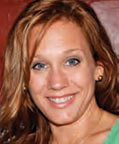 DEBORAH WALKER, BSN, RN, CCRN
DEBORAH WALKER, BSN, RN, CCRN
Deborah Walker, administrative nursing supervisor for Roper St. Francis Mount Pleasant Hospital, recalls the exact moment she decided nursing was the right path in her professional journey. She was a new mom, and her baby was suddenly admitted to an intensive care unit.
“I was out of town, scared and feeling so helpless,” Walker recalled. “It was the kindness, calming attitudes and knowledge of nurses on the unit that compelled me to go into nursing.
As a nursing supervisor, Walker said she enjoys the unique privilege of being involved in direct patient care while ensuring that nurses have the support and tools they need for the best patient outcomes.
“Nurses give so much of themselves every day to care for the patients they serve, and it is my joy to provide them with support and care,” she said.
Her advice to aspiring nurses: “Never underestimate the impact of your service, dedication, kindness, compassion and sacrifices. Although you may not always get accolades and kudos, know deep down the magnitude of your efforts do not go unnoticed.”
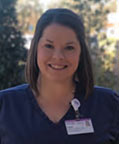 KRISTIN STOREY, MSN, RN, CEN
KRISTIN STOREY, MSN, RN, CEN
Being around nurses and doctors was pretty normal for Kristin Storey as a child. Her mother was diagnosed with a brain tumor when she was just 4 years old and unfortunately succumbed to the disease 11 years later.
“During that time, I met several of her nurses and just remember being in awe of everything they did for my mom and for our family,” Storey said. “So it was a pretty easy decision for me when it came time to decide what I wanted to do for a living.”
Now, as the clinical nurse manager in the Emergency Department at Roper St. Francis Berkeley Hospital, Storey said that what she loves most about her job is knowing she made a difference in someone’s life.
“Nursing is not an easy career to go into. It’s long hours, it’s spending holidays away from your family and it’s emotionally draining, but it is all worth it. Sometimes I wonder if I made the right career decision, but then I remember the patients and it makes everything better,” she concluded.
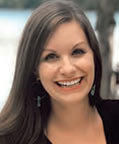 JULIE LOOMIS, BSN, RN-BC
JULIE LOOMIS, BSN, RN-BC
Julie Loomis’ mother suggested she should become a nurse after her younger brother was injured and Loomis calmly assisted him.
When she was a senior in high school, Loomis attended a technical school for part of the year and participated in a program that allowed her to job-shadow a nurse.
“I wanted to make sure that was the right path for me before applying to nursing school and it was,” she said.
Loomis attended Michigan State University and moved to South Carolina the summer after she graduated. She started working on a general medicine floor at Roper St. Francis Hospital and has now been there for eight years.
“I learned that I enjoy the variety of people I get to help, and I love to learn something new every day,” she said.
Her advice to aspiring nurses: “Find what makes you most passionate about helping others and know that the opportunities you have to make a positive impact on someone’s life are endless.”
Jan/Feb 2020
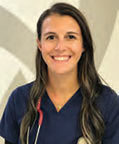 KALEIGH GRIFFITH, RN
KALEIGH GRIFFITH, RN
Kaleigh Griffith, a nurse at Trident Medical Center, has wanted to be a nurse since she was 6 years old. Her mother was a nurse, so she saw firsthand how rewarding the job could be.
She said she met a “little girl with cancer” in her first year of clinical and meeting her made her decide to pursue oncology.
“I eventually want to migrate into pediatric oncology,” she said. “Treating children with cancer is something I am interested in.”
She is currently pursuing her BSN. Her RN license came from Patrick Henry Community College in Virginia.
Her advice to new graduates is to always have a positive outlook and attitude.
She concluded, “The job won’t be easy, but it’s so rewarding and that makes it worth it.”
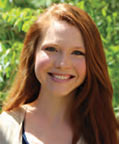 AMELIA HILL, FNP-BC
AMELIA HILL, FNP-BC
Amelia Hill said she went into nursing for the same reason that many do: “I wanted to help people.”
She obtained her BSN from Charleston Southern University but realized that she wanted more autonomy, so she pursued her nurse practitioner degree and received an MSN-FNP from the University of South Carolina.
She currently works at Palmetto Endocrinology.
“As a nurse practitioner in an endocrinology office, a great percentage of the patients I see have diabetes and/or thyroid disorders,” she said.
She enjoys counseling patients on eating a healthy diet and exercising.
“This can result in a significantly higher quality of life,” she said.
She is married and enjoys spending time with her husband, their family and Dewey, their golden retriever.
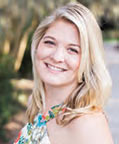 LINDSAY BOZZELLI FRIED, FNP-C
LINDSAY BOZZELLI FRIED, FNP-C
Lindsay Bozzelli Fried’s first degree is in business, but she said “I knew that wasn’t the right field for me.”
Her grandmother, who was a nurse, had a great influence on her life.
“That, combined with my interest in science, led me to pursue a career in nursing,” she explained.
Bozzelli attended the Medical University of South Carolilna for her BSN and the University of South Carolina in Columbia for her MSN, specializing in family nurse practitioner. She spent seven years working at MUSC in the cardiac intensive care unit, as well as in the ICU float pool. She also worked in functional medicine and aesthetics prior to her current job in primary care at Palmetto Primary Care on Daniel Island.
“You do get to see it all in family practice, ranging from common issues to more complex problems. I also like seeing such a wide age range of patients,” she said.
Her advice to new nurses: “Never be afraid to ask questions, and, if you find yourself in a field you don’t enjoy, switch it up. There are endless possibilities to what you can do with your degree.”
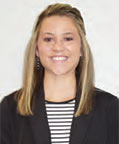 ASHLEY WILSON, FNP, NP-C
ASHLEY WILSON, FNP, NP-C
Ashley Wilson said she enjoys being that small glimmer of light in a patient’s darkest days.
“Nursing, in my eyes, is the definition of holistic care. Not only are you able to care for individuals physically by providing them with medications and wound care, but you are able to care for them emotionally by being a listening ear and a shoulder to cry on,” she said.
Wilson has a background in GI med/surg from MUSC, which is where she worked for three-and-a-half years prior to obtaining her MSN. She is now a family nurse practitioner with Palmetto Primary Care in Crowfield.
She obtained her associate degree from Trident Technical College and her BSN and MSN from the Medical University of South Carolina.
Wilson said the following about nursing school: “It’s going to be hard, but hard does not mean impossible. Nursing is so much more than a job. It’s a part of who you are. Embrace it.”
Nov/Dec 2019
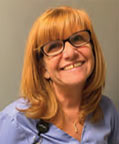 KAREN HALVERSON, RN, BSN, CWON
KAREN HALVERSON, RN, BSN, CWON
Karen Halverson is described by her peers as friendly, focused and the consummate team player. The Goose Creek resident has served as the inpatient wound care nurse at East Cooper Medical Center since June 2018.
“I knew I wanted to care for patients and improve their lives. I shadowed a wound care specialty nurse in college,” she said. Halverson then followed in their footsteps and obtained her wound and ostomy certification. She also earned an associate degree in nursing from the College of the Desert in Palm Springs, California, and bachelor of science in nursing degree from the Augsburg University in Minneapolis.
Karen understands that every individual is unique and one-of-akind. She gives concentrated attention to each patient she interacts with. She encourages aspiring nurses to always ask the patient about their back story and to never stop asking “why.”
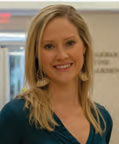 STACEY WARNEKE, RN, BSN, CPHON
STACEY WARNEKE, RN, BSN, CPHON
It was Stacey Warneke’s experience in pediatrics that led her to realize what her true passion in nursing was.
“My first job as a nurse was at MUSC on the pediatric sub-specialty floor. This was an amazing floor, and, though it was mentally and emotionally difficult, I quickly fell in love with the hematology/ oncology and BMT aspects. This was mainly because of the incredibly resilient patients. These pediatric patients and their families would spend so much time on the floor that you would get to know them quite well,” she explained.
She is currently the BMT donor coordinator at MUSC. She works with donors who volunteer to donate bone marrow or peripheral blood stem cells for a patient in need.
Her advice to aspiring nurses: “Nursing school is difficult. Work hard and push through, and you will realize your dreams and find a great reward on the other side.”
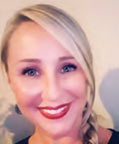 SARAH MCCABE, RN, BSN
SARAH MCCABE, RN, BSN
Sarah McCabe, a home-based primary care RN case manager with the Ralph H. Johnson VA Medical Center, has a passion for helping our vulnerable population. Her favorite part of being a nurse is the longterm relationships she builds with her patients, allowing for more customized and holistic experiences.
She recently won a Daisy Award, which recognizes extraordinary nurses, for her compassionate care. She saved the life of a veteran’s wife who was found on the floor in her home after several hours. McCabe went to the home for her regular check and found the woman, whose husband, the veteran, was suffering from dementia.
“It was an honor to receive the Daisy award. It is a reminder and an inspiration to continue on in my career as a nurse to provide safe and thoughtful care to my patients,” she said.
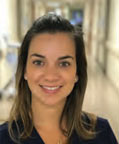 ANNA CAROLINE PETERSON, RN
ANNA CAROLINE PETERSON, RN
Ever since Anna Caroline Peterson can remember, she wanted to be a nurse. Originally from Brazil, Peterson said she has relatives there who are nurses and that she always looked up to them.
“I enjoy being able to take care of others and help them in their time of need. The orthopedic floor was the unit I enjoyed the most during my rotations in school. I love seeing our patients getting ‘fixed’ and how we nurses can help them during the recovery and rehab process,” she said.
Now on the orthopedics team at Trident Medical Center, Peterson said she is very grateful for her career in nursing.
“There is no other job more rewarding than nursing. We need more nurses, and, even though it can be challenging, it is very worth the time going to school and helping our patients,” she concluded.
Sep/Oct 2019
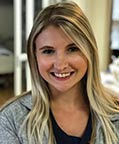 SAMANTHA WISNOM, BSN, RN
SAMANTHA WISNOM, BSN, RN
Samantha Wisnom never thought twice when she was considering what career to pursue in college. When she was in the eighth grade, her great-grandmother suffered a massive stroke and that was when she truly took an interest in the medical field. “My cousin was a nurse at the time, and I admired how knowledgeable she was during those last few weeks of my great-grandmother’s life and the care she provided her,” Wisnom reminisced. She began taking advanced science and anatomy classes in high school and then started looking at colleges with nursing programs. “It all happened very naturally,” she said. She graduated with a BSN from the University of South Carolina in 2016 and currently is enrolled in the school’s MSN program. She also is working as a cardiac nurse at Trident Medical Center. “I think it is a great specialty to be in because of its prevalence in today’s society, as heart disease is the leading cause of death for both men and women,” she pointed out.
She concluded, “The schoolwork is hard, and the job itself can be emotionally, mentally and physically exhausting. However, the impact you will make on patients’ lives will stick with them and you forever. It is such a rewarding job and worth all the bad days combined.”
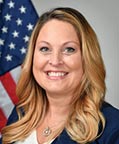 KRISTEN SCHENKEL, BSN, MSN, RN
KRISTEN SCHENKEL, BSN, MSN, RN
Kristen Schenkel found a role in nursing that combines her passion for financial management with her passion for nursing. As the nurse manager of staffing and resources at the Ralph H. Johnson VA Medical Center, Schenkel ensures that safe staffing levels are in place, and she works to retain the best nurses in the community to work at the VA.“I have been blessed to find a way to combine my passion for finance with my nursing leadership career,” she said. She started in health care as a patient care technician on the medical/ surgical unit at St. Joseph’s/Candler Hospital in Savannah, then went to the intensive care unit while attending nursing school. She completed her BSN and remained in Savannah, where she transitioned to an intensive care unit staff RN. After a few years of bedside nursing, she completed her MSN in nursing leadership and administration and moved into nursing administration as the nurse recruiter at the VA in 2016.“Research continues to show us that by increasing and improving staffing, we can reduce negative outcomes for our patients by up to 20%,” she pointed out. “I strive to ensure that not only do our veterans know they are receiving the safest care but that our staff know they are able to provide the safest care.”
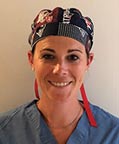 JANINE KOVACH, MNA, APRN, CRNA
JANINE KOVACH, MNA, APRN, CRNA
Janine Kovach can remember a particularly snowy night in New Jersey when she was only 5 years old. Her mother, a nurse, was picked up by the police and taken to work because the weather was too treacherous for her to drive. “I remember thinking how I wanted a job that was so important to people’s lives that a police officer would come get me if need be,” she said. She started out as a general tech doing patient care and then pursued a nursing degree. Her first job out of college was as a pediatric ICU nurse. “I loved every minute of it,” she exclaimed. “I finally got to the point where I wanted more knowledge and independence at work but also wanted critical care on a daily basis, so I chose to go to nurse anesthesia school. It’s the best decision I’ve ever made,” she said.
She now works for Anesthesia Associates of Charleston, providing quality anesthesia for patients in the Roper St. Francis Hospital System. She hopes to get into teaching in the near future so she can give back to the nursing community for all the guidance and education she received during her journey.
“I would tell aspiring nurses to go into nursing with the desire to be compassionate, lifelong learners. Health care is ever-changing, and our patients need us there not only to care for them but to advocate for them and their families,” she concluded.
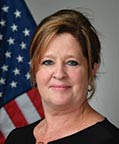 KATHLEEN GILLARD, MSN, RN, CNL
KATHLEEN GILLARD, MSN, RN, CNL
When Kathleen Gillard saw how a hospice nurse took care of her grandmother, she knew in that instant that she had to be a nurse. “The nurse that provided care for my grandmother had such dedication and vigilance to not just my grandmother but to my entire family. She made an indelible impression on how I saw nursing,” she reminisced. Gillard is currently working as a clinical nurse leader in the position of high reliability program manager at the Ralph H. Johnson VA Medical Center. “My father is a retired Navy veteran, and I couldn’t imagine a better way to return the favor of his service other than to be a nurse at the VA, caring for our nation’s veterans,” she said. Over the past decade, Gillard has submerged herself in her passion of hospice and medical/surgical nursing. She said she loves being a clinical nurse leader because she can remain hands-on and can also educate, as well as continue to influence the nursing practice. “Listen to your gut. If you have a feeling that something isn’t right, then question the actions of yourself and others to keep your patients safe,” she advised.
Jul/Aug 2019
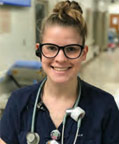 HOLLY LOH, BSN, RN, TCRN, CEN
HOLLY LOH, BSN, RN, TCRN, CEN
Holly Loh chose her specialty in nursing because of the adrenaline rush. She has worked in the emergency room at Trident Medical Center since 2015, and, in the fall of 2018, she became a designated trauma nurse lead as part of the level 2 adult trauma program. “I was originally a cardiac nurse, and I loved it but wanted something more fast-paced. I became an adrenaline junkie and fell in love with everything ER and trauma. We see our patients and their families on some of the worst days of their lives, and it’s an amazing feeling to make a positive impact on them and try to make their day a little better,” she said. Originally from Maryland, Loh said she is the first nurse in her family. She decided to pursue nursing because of her early love of science. “We had a nurse come to career day in high school, and I was sold,” she concluded. She advises new nurses to “Never give up! There are limitless opportunities for nursing and so many different areas you can focus on. If you aren’t happy in your current specialty, you can find something new to explore and love.”
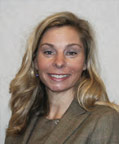 ANDREA COYLE, MHA, MSN, RN, NE-BC
ANDREA COYLE, MHA, MSN, RN, NE-BC
It was always a dream of Andrea Coyle’s to do something where she was going to make a difference in people’s lives. She not only enjoys assisting patients and families with their needs, but she also is passionate about inspiring and motivating future and current practicing nurses.
As the professional excellence and magnet program director at the Medical University of South Carolina, Coyle has the opportunity to make changes and empower others. She is responsible for leading a driving strategy of the nursing strategic plan, facilitating shared governance and restructuring the nurse clinical ladder. One of Coyle’s many successes was completing a nutrition pilot program at MUSC that increased nurses’ consumption of fruits and vegetables. “I love evolving and managing positive changes,” she explained. She truly believes that nurses have the ability to make the impossible possible. “As the profession evolves, the sky is the limit. Keep going; don’t remain stagnant. Obtain advanced degrees, join professional organizations and obtain specialty certifications. The commitment to the profession of nursing is worth the hard work,” she said.
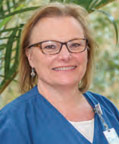 TRACEY JONES, RN, CMSRN
TRACEY JONES, RN, CMSRN
For Tracey Jones, becoming a nurse was not something she “just knew.” “I was interested in it for a long time, but it wasn’t until my last child was born with a cardiac arrhythmia – which he outgrew – and was hospitalized that I decided it was time to return to school for nursing,” she explained. She has been a nurse on the surgical unit at Bon Secours St. Francis Hospital for 20 years, and she said she loves her job. “I picked my specialty by accident. I originally had planned on pediatrics. I took a job on the med-surg unit to get my one year of experience that was recommended at the time. I thought I hated it. Time passed and I grew to love it. Besides, nursing is my passion. The occasions when I really connect with one of my patients make it worthwhile. I find it very rewarding when I can get patients talking and laughing,” she explained. She noted that her co-workers across the Roper St. Francis system have been the best people she has ever worked with. “Nursing can be extremely difficult emotionally, physically and mentally. The challenges are endless. But at the same time, it is unique and constantly changing. It is also reassuring that the job opportunities are so vast and different for individuals with nursing degrees.”
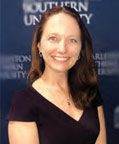 SONJA KOECKERITZ BSN, RN, CEN
SONJA KOECKERITZ BSN, RN, CEN
As an ER nurse at Roper St. Francis Mount Pleasant Hospital, Sonja Koeckeritz noted that what makes working in the emergency department so unique is the staff’s vital ability to work as a team: “We rely on each other for everything. At any moment, we could go from one patient to a dozen patients, and we need to be prepared for anything that walks in the door. ”She also is a preceptor in her department. She said she loves that aspect of her job because “the role of preceptor is key to the success of the hospital. I hope that I am able to infuse my knowledge and experience and grow strong clinical nurses.” And she does her job very well. Koeckeritz was a 2019 Palmetto Gold winner and the 2016 Mount Pleasant Hospital Nurse of the Year. “As a nurse, I enjoy being able to care for patients as if they were my own family in the hopes that at another point in time someone would treat my family with the same compassion and dignity. I enjoy educating patients on their diagnosis and treatment plans in ways that they can understand and improve their compliance.”
May/June 2019
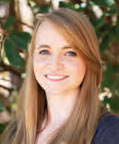
RACHEL CORVINO BSN, RN
Rachel Corvino, a clinical research recruiter with Palmetto Primary Care Physicians, started her nursing career about two years ago on the orthopedics/neuroscience floor of Trident Medical Center. Recently, when an opportunity arose, she moved over to research – and she hasn’t looked back.“The aspects I enjoy most about my position as a research recruiter are learning about the cutting-edge medications and treatments that will be able to help so many people, being able to assess patients to see if they would be good candidates for studies and then being able to educate patients about the studies and the new treatment options that the studies would provide,” she said.Although new to the field, she would advise aspiring nurses never to be afraid to seek out and explore different specialties.“Nursing is such a diverse field, and there are many great avenues you can follow. Also, never be afraid to ask questions and keep a love for learning. Never become complacent with your knowledge,” she concluded.
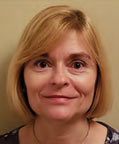
SUSAN BRANNOCK, LPN
Susan Brannock did not go to college to become a nurse, even though that career path was always in the back of her mind. She actually earned a bachelor’s degree in criminal justice from Charleston Southern University.She got a job working at a local hospital right out of college. Later, she took some time off to have a child and then decided it was time to enroll in nursing school. She entered the nursing program at Trident Technical College and volunteered at a hospice agency. Her goal at that time was to work in a nursing home because she felt geriatrics was her calling. She obtained her first job at the Village of Summerville, working in the clinic that cared for assisted living and independent residents.“I fell in love with the people and enjoyed many wonderful interactions,” she said.She later moved on to to a job with Palmetto Primary Care Physicians and has found a new love for working with all ages – from newborns to senior citizens.“I am now getting to watch babies grow up and give them vaccinations,” she said. “And I still get to help older folks with their needs, not to mention every age in between. I never have a dull day.”
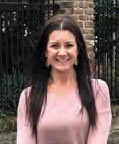
SHANNON WICKERSHAM, LPN
Shannon Wickersham said she initially pursued a career in the primary care setting as a nurse because it was more conducive for her family and their activities. But it didn’t take long before she realized that it was actually a true calling and her passion.“Working in primary care is one of the most rewarding things I have ever done,” she said. “I thoroughly enjoy working with patients of all ages, during all different times of their lives, in sickness and in health.”She graduated from Roper Hospital School of Practical Nursing in 2001 and began working on a medical surgical unit in the hospital setting. She remained in that position for 10 years.She now works in the Palmetto Primary Care Physicians Summerville office. She is a married mother of four daughters and she hopes she can be an inspiration to them, just as her mother was to her.“My mother, who is also a nurse, was my inspiration,” she said. “She encouraged me to pursue a nursing career. I became a nurse because I love helping others and I genuinely care.”Her advice to aspiring nurses is to work hard, ask questions and don’t get discouraged.“This is one of the most rewarding professions. Do not give up. Strive to make a difference every day,” she concluded.
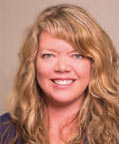
CHRISTINA J. KETRON, DNP, MSN, RN
Dr. Christina J. Ketron originally planned a career in public health while attending East Tennessee State University. She soon realized that more patient interaction was what she craved.When she obtained her public health degree, she immediately went back to school to follow her dream of being a nurse. Her first seven years in the nursing field were spent in a medical intensive care unit.She has been a nursing instructor for the last five years, with the last year-and-a-half at MUSC. She finished her doctorate of nursing in psych mental health this May.“I chose the psych mental health focus because I saw how important it was to treat the whole patient, regardless of their diagnosis. When we don’t address mental health, often the physical health will not fully improve,” she said.Her advice to nurses new to the field?“Never be afraid to ask questions; doing so improves the nurses’ critical reasoning, helps them advocate for patient care and fosters research and scholarship within the profession.”
March/April 2019
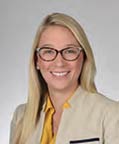
KRISTEN POSTON, DNP, FNP-C
“Service for the greater good is a career and a life worth living” – that was what was instilled in Dr. Kristen Poston from a young age by her father, who served 30 years in the U.S. Air Force.“I witnessed my parents dedicate their lives to the service and support of this country,” Dr. Poston said. “So I wanted to choose something that allowed me to pursue lifelong service and advocacy of others as well.”Dr. Poston spent her time as a registered nurse working in neurology and neurosurgery and has a specific interest in acute stroke, as well as poststroke transitional care. Her doctoral work focused on reduction of re-admissions in ischemic stroke patients. She is an AANP certified family nurse practitioner and currently practices in urgent care.Dr. Poston joined MUSC as an adjunct faculty member in 2014 and transitioned to a full-time faculty role in 2017.“I currently practice as an FNP, but I also teach because I truly feel that we are only as good as our next generation of nurse change-makers. My passion is teaching, particularly teaching using innovative education methods for today’s ever-evolving learner,” she concluded.
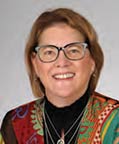
KATHRYN KINYON, DNP, MSN, PPCNP, AHN-BC
Pulmonary disease and cystic fibrosis have become a career focus for Dr. Kathryn Kinyon, who is currently an undergraduate instructor at MUSC.As a nurse advocate, she wrote the bill and lobbied for the legislation which allows children with cystic fibrosis to carry and self-administer pancreatic enzymes while at school. She also published original research on the perception of illness in children with cystic fibrosis and their parents, and she completed the production of three original educational videos on the disease. “When I graduated as a pediatric nurse practitioner, I had the honor to care for children with chronic pulmonary conditions. That experience led me to become certified as a holistic nurse,” she said. She said she loves the idea of healing a person based on mind, body and spirit – the holistic way – rather than just treating the disease. As an undergraduate nursing instructor, she said she now gets to live out her lifelong dream of teaching the next generation of nurses. “My advice to nurses is to follow your dreams, keep learning and exploring. Know that what you do today can change a life for forever.”
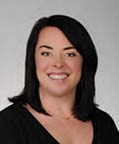
CHRISTINA MCDANIEL, RN, MSN, CHPPN
It was a trip to see her aunt that sealed the deal for Christina McDaniel on wanting to pursue nursing as a career.“I got an opportunity to spend a summer shadowing my aunt who was a nurse at a university in the Upstate. I saw the nurturing way in which she did her job and that it was more than a job – it was a passion.”She started her nursing career at MUSC Children’s Hospital in the neonatal intensive care unit. She later transitioned into a staff nursing position floating throughout the Children’s Hospital.She then went on to work in ambulatory care and later accepted a position with Hospice Care of South Carolina’s Hands of Hope Pediatric Hospice and Palliative Care program.“Children with complex conditions is something I am passionate about. Understanding how to make their journey more manageable is what I have focused on professionally and what brings me the most fulfillment.”After furthering her leadership experience as a director of operations for a multi-state hospice company, she joined the faculty at MUSC’s College of Nursing. This opportunity helped her find her passion in educating future nurses.“Our future lies with our students. As nurses, regardless of our specialty, we have to nurture and support our future nurses.”
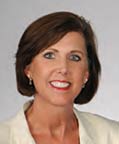
MELODY REIBEL, PH.D., MSN/ED, RN
Dr. Melody Reibel has known that she wanted to be a nurse since middle school.“My best friend and I decided to take a CPR class and become hospital volunteers on the weekends,” she remembered.Her first job was as a part-time nursing assistant in an adult intensive care unit. After she received her RN, she stayed in that specialty and worked in an intensive care unit for 20 years.Later in life, in the midst of raising a family, she decided to transition from nursing practice to nursing education.“I knew I loved mentoring new nurses in the critical care units and believed I had a talent for teaching aspiring nurses,” she said.That transition phase began in 2000. She said she never dreamed she would go on to pursue a Ph.D. in nursing, conduct nursing research and continue teaching in the university setting.Dr. Reibel’s research interests are focused on investigating and improving patient and health care provider communication in women with fibromyalgia.Her advice to aspiring nurses is, “Never become stagnant and lose passion for your career. Challenge yourself and seek out new opportunities throughout life.”
January/February 2019
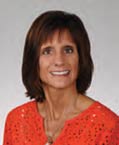
KATHY VAN RAVENSTEIN, Ph.D., APRN, FNP-BC
Dr. Kathy Van Ravenstein admitted that she loves so many different specialties in nursing but that her favorite has been working with adults and older individuals with multiple chronic health conditions. Now as an assistant professor in the MSN/ DNP program at MUSC, Dr. Van Ravenstein teaches potential nurses and nurse practitioners about the career that she is so passionate about.Her nurse practitioner background began when she saw some of the other nurse practitioners interacting with physicians when she worked as a nurse in the ICU. Her teaching background began after she became a nurse practitioner and started teaching clinicals at the undergraduate nursing school level.”After doing that, I knew that I always wanted to teach to have the opportunity to share my knowledge with future nurses and nurse practitioners,” she said.She concluded, “I have been fortunate to be able to enjoy all the different facets of nursing, including teaching, caring for patients and conducting research. I find that in nursing, there is never a dull moment, and there is always an opportunity to explore something new and continue to grow and learn.”
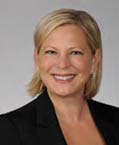
STEPHANIE ARMSTRONG, PH.D., RN, CNS
Dr. Stephanie Armstrong was always fascinated with the physiology of the human body.”The human body is so intricate yet is able to function so perfectly,” she said.It was her desire to learn more about the anatomy and physiology of the human body, coupled with her passion for helping others, that got her interested in nursing.Her specialty area is women and infant health.”I enjoy being able to help families as they experience the physical and psychological changes that coincide with pregnancy and birth,” she said.Currently, as an instructor in the college of nursing at MUSC, she teaches women’s health, but, in the past few years, she has been studying and working with human trafficking victims. She teaches her students how to spot these victims and how to take special care of them.”Working to educate health care professionals on how to recognize and respond to this vulnerable population has become one of my top priorities,” she explained.According to Dr. Armstrong, nursing is much more than a career choice.”You will impact the lives of others,” she said. “That makes nursing an exceptionally rewarding profession.”
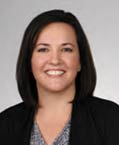
AMY GULLEDGE, MSN/ED, RN, CNE
Amy Gulledge said she has found her passion with teaching future nurses.”While I loved caring for patients at the bedside, my passion for academics began to grow as I continued my own education,” she said. “I witnessed what an impact academic nurse educators can have on one’s nursing practice and future, and I wanted to be part of it.”Her clinical experience was in med-surg, cardiac, orthopedic, trauma and case management. She is currently a college of nursing instructor at MUSC, and she is in her second year of the accelerated Ph.D. program.”I started the Ph.D. program so I could make a difference in health care through research that aims to improve the quality of life of individuals and communities,” she said. “I am especially interested in the effects of social isolation in those with chronic respiratory disease.”Her advice to aspiring nurses? “Nursing is such a diverse field with so much opportunity. Find the specialty you love and never stop learning and growing,” she concluded.
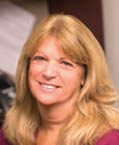
DONNA REINBECK, PH.D., OCN, NEA-BC
As an assistant professor at MUSC in the Department of Nursing, Dr. Donna Reinbeck has the opportunity to practice her two passions – nursing and teaching.Growing up, Dr. Reinbeck’s mother was a nurse, and her grandmother was a teacher. She said she loved both professions and knew she wanted to be one or the other. What sealed the deal for her on becoming a nurse was when her mother became very ill when Dr. Reinbeck was young.”The nurses who cared for her during this time had an impact on me and my family. I will never forget the care and generosity they demonstrated toward my mother. This, and remembering how I always admired the camaraderie that existed among her nursing colleagues, acted as an inspiration for me to become a nurse,” she said.When she completed her Ph.D. degree, after many years of working as a nurse in a hospital setting, she said that she immediately went to teaching and has never looked back.Her advice to aspiring nurses? “Never stop learning. Be flexible and open to new specialties. There are endless opportunities in the nursing profession.”
January/February 2018
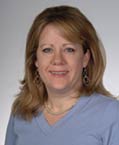
RUTHIE CONNER, Ph.D, RN, FNP-BC, ASSISTANT PROFESSOR
Dr. Ruthie Conner has enjoyed working in many aspects of the nursing field throughout her career. She was once a hospital nurse, a travel nurse and a transplant coordinator. She is now an assistant professor in the Medical University of South Carolina’s College of Nursing program in the doctor of nursing program. She also enjoys working as a family nurse practitioner in the HouseCalls program at United Healthcare.She said she was inspired by her father to pursue a career in nursing.”My dad was chairman of the board of trustees at Lexington Medical Center when I was in high school,” she said. “He had a huge respect for all health care workers, especially nurses. He encouraged me to pursue a nursing degree.”Dr. Conner holds a bachelor of science in nursing from Clemson University and a family nurse practitioner and Ph.D in nursing from MUSC.Dr. Conner said she is thankful for her father’s encouragement.”I have enjoyed every moment of my career. It is so rewarding to provide emotional and physical comfort to people who are not feeling well,” she said.As a nurse educator, Dr. Conner enjoys mentoring students.”I wanted to make sure that nursing students understood that a positive attitude and a genuine display of kindness with each and every patient were just as important as their knowledge and that if at any time they did not enjoy their job that there were countless other job possibilities in this amazing profession.”
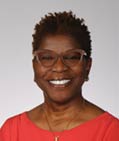
DEBBIE CHATMAN BRYANT, DNP, RN, FAAN
As an associate professor, associate dean for practice and the director of outreach and community relations, Dr. Debbie Chatman Bryant never wants to forget where she came from and as a result now dedicates her career to bridging the gap in understanding and respect between at-risk communities and health care systems.”I grew up in a small, rural community in South Carolina. I witnessed firsthand the daily struggles families faced – raising children, paying the bills, putting food on the table and caring for elderly or ill family members. Mothers and families often put their own health care needs on the back burner because they didn’t have the time, the money or access to health care. As a result, I watched many of them succumb to preventable and manageable diseases,” she said.Much of Dr. Bryant’s current work involves health inequities for marginalized populations.”Many of the issues encountered in at-risk communities are heartbreaking and frustrating, but all of the stories are real and underscore the challenges facing poor, rural, underserved communities in need. The faces in these communities represent an inescapable public health crisis of our time. Our job is to expand nursing influence beyond traditional health care boundaries and find solutions for social justice issues toward greater gender, racial and ethnic equality,” she said.Dr. Bryant’s advice to new nurses: “Find grace in leaning into uncomfortable spaces to advance change. Reform policies using our influences as nurses to address social determinates of health and public health practice. Identifying solutions will not be easy, but I believe as said by the late James Baldwin: ‘Those who say it can’t be done are usually interrupted by others doing it.’ As nurses – lean into the hard work!”
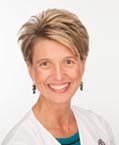
KIM BRADLEY, RN, BSN
Kim Bradley said she felt “called” to do what she is currently practicing in nursing. As a Marine spouse of 25 years, Bradley has a distinct understanding and awareness of the challenges and difficulties facing military families. With over 20 years of experience as a nurse, Kim has worked the last 11 years for the Navy Marine Corps Relief Society as a combat casualty assistance visiting nurse, helping post 9/11 Marines, sailors and their caregivers adjust to life after wartime service. In her unique role, she has been able to travel throughout the United States, making face-to-face visits at no charge to the patients and families, regardless of their discharge status. She currently covers the states of South Carolina and Missouri.Bradley said her education took her almost 20 years and to nine different schools after many military moves and raising two children while taking classes. She completed her ADN at the Jewish Hospital College of Nursing in St. Louis, which is now called Godfarb School of Nursing. She completed her BSN online through Chamberlain College of Nursing almost 10 years later, when her kids were in high school.She spent her first 10 years of nursing working as a mother/baby nurse, parent/child educator and as a lactation consultant before moving on to help military families.”I am a person of service and compassion, and I felt nursing was a great fit for me as a mom and military spouse,” she said.
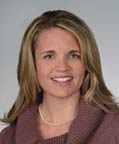
DR. CARRIE L. CORMACK, DNP, APRN, CPNP
Dr. Carrie Cormack is an assistant professor at the Medical University of South Carolina. She is the lead pediatric faculty in the MSN/DNP program. But beyond her success as a nurse, she always knew she wanted to work with children.”During high school, my dad and I volunteered together weekly at a children’s hospital in Boston. That experience was so meaningful and made me realize that pediatric nursing was my calling. My early experiences as a nurse definitely shaped my career path, and I found myself gravitating early on toward children with medical complexities,” she said.She wholeheartedly believes that new nurses should follow their passion, and, if there is a population of people they think they could help, they should go for it.”Being a nurse is not a job; it’s a part of who you are. There is nothing like the feeling you get when you love what you do and you are able to make a difference in the lives of others,” she said.She advises new nurses to remember to take the time to listen.”Days will be busy, and there will always be more to do. But take time to listen to your patients and families. If they offer to share their stories, take them up on it. I have learned so much from my patients and their families,” she said.
November/December 2017
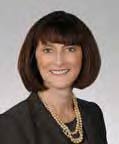
DR. MICHELLE NICHOLS, Ph.D, RN
Dr. Michelle Nichols never thought she would have chosen the field of research when she was in college. Currently, as a nurse scientist, she said she wouldn’t have it any other way. “Research ended up becoming a passion of mine,” she said. She worked as a research nurse after she completed her master’s degree but wanted to pursue her doctorate so she could conduct her own research.She said one of the best parts of being a nurse scientist is that she doesn’t lose the one-on-one patient interaction. “I still get to maintain that close connection with patients and families, but I get to use my knowledge and skills to address clinical needs important to their health,” she said.At MUSC, Dr. Nichols’ interests include reducing health disparities through health promotion and disease prevention in under-resourced populations, the use of community-based participatory research methods, prevention and treatment of chronic diseases and clinical research ethics.Dr. Nichols specializes in working with underserved children, adolescents and their parents to improve health literacy and health behavior change.
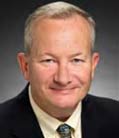
DR. JAMES PELLETIER, Ph.D, RN
Dr. James Pelletier, a nursing professor at The Citadel’s Swain Department of Nursing, said that he was working in the Navy as a diver when he decided to pursue a career in nursing.”I found the science behind hyperbaric therapy fascinating, and it really piqued my interest in health care as a career field,” he said.He said he was drawn to working in nursing education because of the impact nursing professors can have on the lives of their students. “The cornerstone of a nurses’ ability to provide competent professional care lies in their entry level education. A high-quality entry level education provides them with skills to grow in their profession and expand their contributions to their patients and the field of nursing. I plan on staying in nursing education largely due to the enthusiasm, intellectual curiosity and dedication of our students. They create an environment that is just great to be a part of,” said. Dr. Pelletier.The nursing program at The Citadel began in January 2017. Students who complete the program will earn their bachelor of science in nursing.
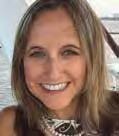
SOPHIE FOWLER, FNP-BC
Working in the health care field was definitely in Sophie Fowler’s blood since her father, grandfather and great grandfather were all doctors. “They sparked my interest in medicine,” Fowler said. Her specialty is palliative care, which she started working in at the Ralph H. Johnson VA Medical Center. She said she never thought she would have loved palliative care as much as she does now. “It is the art of helping people with some of the most difficult decisions of their lives,” she said. “I enjoy being there to help guide people as to what is best for them.”Fowler works for LTC Health Solutions, which offers patients a team of high-quality medical professionals to provide consistent care to people in full-care or assisted living facilities.When it comes to working in geriatrics with palliative care, Fowler said that she believes in treating the patient as if he or she were her mother or father. “Put yourself in your patient’s shoes and always treat them as if they were one of your own,” she advised.
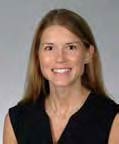
TERRI FOWLER, DNP, APRN, FNP-C
As an assistant professor in the nursing program at MUSC and a family nurse practitioner, Terri Fowler sees the value of teamwork in the nursing field and stresses the importance of working as a team to her students. “In my role as a faculty member, I work hard to identify the best models for teamwork in the clinical setting,” she said. “I teach my students what it takes to be a member of a high-functioning health care team.”She realized how much she loved the profession when she was considering nursing as a career during her undergrad years at the College of Charleston. “I was instantly attracted to the profession because I wanted to do something that was meaningful, gratifying and that made a difference in the lives of others,” Fowler said.She stays active in the clinical setting by working at a local clinic offering primary care. “I enjoy seeing patients and experiencing firsthand the role of interprofessional teamwork in a clinical setting as well as experiencing the role of nurse educator,” she said.
September/October 2017
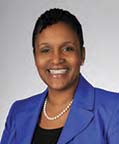
GAYENELL S. MAGWOOD, Ph.D, RN, FAAN, ALUMNUS CCRN
Nursing was actually Dr. Gayenell S. Magwood’s second choice in college.“After I graduated college the first time, I wanted a ‘do over,’” she said. “An opportunity arose for me to pursue my BSN and the rest is history.”Dr. Magwood began her career as a trauma ICU nurse.“At that time, I was concerned with the continuum of care at home that the patient received from family and close friends once discharged,” she said.While working on her master’s degree, she completed a practicum with a transplant nurse and fell in love.“My time as a transplant coordinator let me combine my interest and passion for working with patients and families dealing with complex conditions,” she said.To say she is heavily involved in her community is an understatement. She was project director for REACH in 2010 and is currently heavily involved with the American Association of Critical Care Nurses, Sigma Theta Tau International Honor Society in Nursing, National Black Nurses Association, the American Nurses Association and many more.Dr. Magwood advised, “Commit to never stop learning. RNs are an integral part of the health care system, and we have a responsibility to contribute to our community.”
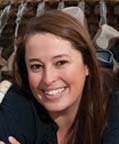
MARY GUILLAUME, RN, STAFF DEVELOPMENT COORDINATOR
Mary Guillaume realized her love of caring for older adults when she was in nursing school at Trident Technical College. “They have lived a life that we don’t see anymore,” she said. “I had the most profound conversations with them, and I knew that geriatrics was what I was called to do.”Guillaume works for Presbyterian Communities of South Carolina, specifically The Village at Summerville, a faith-based retirement community that provides multiple levels of care, including independent living, assisted living, skilled rehab and long-term care. There are five communities under the Presbyterian Communities umbrella in the state. “I started working there after I graduated nursing school in 2012,” she said. “I was an RN on the floor and had the privilege of taking care of patients as they moved through each level of care until the end of life. Knowing that you made those transitions easier is an amazing feeling. ”Now as staff development coordinator, Guillaume educates nurses on providing the best possible care to their seniors. She said she feels fortunate to work with skilled staff, cutting-edge technology and brilliant physicians. “We also have the most fantastic seniors as patients,” she said. “It is an honor to be their nurse.”
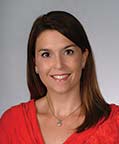
CATHERINE O. DURHAM, DNP FNP, DIRECTOR, MSN DNP PROGRAM
While on active duty in the Navy, Dr. Catherine Durham was working in intensive care and noticed the importance of prevention. “I started to realize how vital the quality of primary care was and how crucial it was to have access to it,” she said. While in the Navy, Dr. Durham was selected for a program to complete her MSN. She then pursued a career in family medicine and has been working as a family nurse practitioner ever since. Although Dr. Durham is also an active drilling reservist in the Navy, holding the present rank of commander, she admitted that the best decision she ever made was to be a nurse. “Having the opportunity to engage with patients at their most vulnerable times can have a positive lasting impact,” she said. “Pursuing nursing has been the most valuable thing I have accomplished in my professional career.” She added, “I knew I wanted to be a nurse from an early age. I had an interest in helping others and loved the science associated with being in health care — those two things together were the perfect mix for me.”
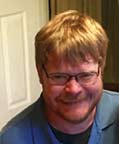
WILLIAM STRICKLAND, RN CASE MANAGER
They say working in hospice takes a special person, and William Strickland, RN, and case manager with Intrepid Hospice, fits the bill. “I want people to be able to enjoy time with their family and friends in their last days rather than worrying about going back and forth to appointments and hospitals,” he said. He said he loves the challenge of nursing. “I became a nurse because I knew I enjoyed caring for people,” he said. “Nursing offers so much to me when I am caring for people at their bedside.” Intrepid Hospice offers many facets of care once a person is diagnosed as terminal and given a prognosis of six months or less to live.“There is nothing quite so special as being with a person when they are transitioning to a new existence. It is simultaneously the most difficult yet rewarding job that a person can do. Knowing that you not only helped the person die with dignity and comfort but that you helped a loved one to achieve that goal for their loved one is an incredible experience,” Stickland said. His advice to new nurses is to study, observe, listen and ask questions.“Even when you are out of nursing school, the learning doesn’t end,” he said.
July/August 2017
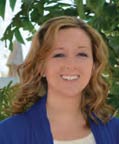
MORGAN MCCALL, BSN, RN, CHPN
Morgan McCall, the clinical coordinator for the palliative care program of LTC Health Solutions, had no idea she wanted to be a nurse when she was in college at Charleston Southern University, let alone to eventually work in hospice and palliative care.“I was an undeclared major,” she said. “After two years of college, I went to my career advisor, and all I knew was that I wanted to help people, so I gave nursing a try.” She felt it was a calling when she was one of 40 accepted into the program out of 120 who applied. Working in hospice also came to her as a “sign.” A family member of hers was battling a disease, and, on the morning that the family member passed, she got a call from Agape Hospice asking if she would like to interview with them. After working there for three years, she transitioned to palliative care. “I now work with patients earlier in their disease process,” she said. “There are no words to describe the countless interactions I have had over the past five years. I am grateful to have been blessed with the opportunity to work with each and every one.”
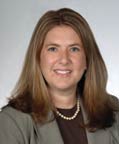
SUSAN D. NEWMAN, Ph.D, RN, CRRN
It was serendipitous for Dr. Susan D. Newman to end up in the specialty of rehabilitation as a nurse. “When I graduated, hospital positions were scarce,” she said. “There was an opening at the Roper Rehabilitation Hospital, so I applied and here I am.” Newman grew to love working in rehabilitation, especially working with people who had spinal cord injuries. “The whole focus of our practice is to help people regain their maximum independence after a disabling health event or injury so they can continue to live full and productive lives,” she said. Currently, Newman is an associate professor in the Ph.D program at MUSC’s College of Nursing. She focuses her research on developing interventions to optimize the health and independence of people with spinal cord injuries. Newman advised new nurses to “be curious.” She said, “Understand why we do the things we do as nurses. Seek out the evidence that informs our practice. This is what led me into a career in research – I wanted to understand what interventions would best help people with spinal cord injury.”
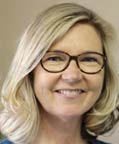
ANNEMARIE SIPKES DONATO, DNP, APRN, FNP-BC
As a family nurse practitioner with LTC Health Solutions and Agape Hospice, Annemarie Sipkes Donato really gets to know her patients personally, and that is her favorite part of being a nurse. “Compassionate care of patients and their families in their home is very rewarding to me,” she said. Donato just returned to working fulltime as a nurse after teaching at MUSC for 20 years. “I always taught my students to treat their patients as they would want to be treated,” she said. “I also always encouraged them to really study where they wanted to work as a nurse. There are many different areas and so many new opportunities to seek.” She also said that being open-minded about all the different areas of nursing will lead to success in the specialty they choose. For Donato, hospice was definitely the specialty that became her passion. “Having the opportunity to see patients in their homes inspires me to give the best care possible so that patients and their families have the resources available to them to live the best quality of life,” she said.
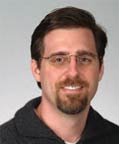
BERRY S. ANDERSON, Ph.D, RN, ASSISTANT PROFESSOR
Berry S. Anderson realized his passion for psychiatric nursing during his last semester of nursing school. A mentor led him down the path of psychiatry, and he began his career as a staff nurse over 20 years ago at the Institute of Psychiatry at MUSC. He now teaches nursing at MUSC and works as a research nurse manager in the Brain Stimulation Laboratory. “Now, I get to combine my passion for teaching psychiatric nursing with my passion for research,” he said. Anderson’s research focuses on the use of brain stimulation technologies to understand brain function and treat psychiatric disorders. He has conducted many professional brain stimulation presentations, most notably at the International Society of Neurostimulation and the American Psychiatric Nurses Association. Anderson’s advice to anyone thinking of becoming a nurse is, “Take a chance and work outside of your comfort zone. Don’t follow the herd – be yourself.”
May/June 2017
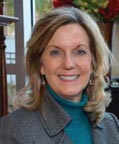
KITTY WEAVER, RN, BSN
Kitty Weaver finds great satisfaction from educating patients when they are experiencing either chronic illness or needing end-of-life services. “I had the opportunity to work with my father-in-law, an elderly aunt and a friend’s mother at the end of their lives,” she said. “It became a passion of mine to assist people at this very vulnerable time.”Weaver is currently the director of palliative care for LTC Health Solutions, a sister company of Agape Hospice. She has worked in many different aspects of nursing over her 30-year career but has been working in the hospice realm since 2012.“In palliative care, it is rewarding to offer help to people who are suffering with chronic illness but not yet needing hospice services,” she said. “I enjoy helping people with symptom management and advance care planning so that they can focus on the quality of their life.”
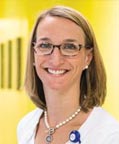
AMY WILLIAMS, DNP, APRN, CPNP-PC
Amy Williams is an assistant professor in the Masters of Science and Doctorate of Nursing Practice program at MUSC. She also provides primary care to patients at the MUSC University Pediatrics – Northwoods in North Charleston. Her specialty is pediatrics, and she takes particular interest in childhood obesity, childhood asthma and in promoting culturally effective health care, which is why she is fluent in Spanish and speaks it at her clinic in North Charleston regularly. “I’ve always loved working with children and the same was true when I became a nurse,” Williams said. Williams also said that she loves the level of teamwork that goes into pediatric care. “There was and continues to be an initiative to care for them as holistically as possible. That may mean helping them overcome illness, manage chronic conditions or maintain optimum levels of health,” she said. As a nurse educator, Williams encourages nurses to commit to being their best by always continuing to learn. “Stay educated on the latest trends and always take care of yourself first. Our patients and communities depend on you,” she said.
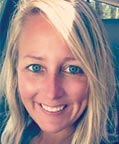
KELLY HOLMES, RN, BSN, CPT, USAR
Kelly Holmes works as a nurse on the labor and delivery unit at East Cooper Medical Center and, for the past nine years, has worked as a nurse in the Army Reserves. Holmes was working in women’s health diagnostic sales in 2006 when she decided to pursue a career in labor and delivery nursing. “I was selling a test to assess risk of preterm delivery, and most of my job was educating nurses on the test. I had a passion to be on the other side,” she said. “I wanted to be the one taking care of these patients.” For Holmes, what she loves most about labor and delivery is certainly witnessing the miracle of birth, but she also enjoys observing families — how they interact in the delivery room and how the baby is introduced to the siblings. She advises other nurses to always take the most difficult patients. “You will learn the most from them,” she said. She also feels incredibly honored to be serving her country in the Army Reserves. “The Army Reserves has afforded me some extraordinary learning experiences and has taken me to some very interesting places,” she said. “I’m honored to serve this country and the soldiers of the Armed Forces alongside some phenomenal medical professionals.” We have partnered with the Medical University of South Carolina College of Nursing to highlight some of the Lowcountry’s top nurses. HealthLinks Charleston wants to recognize nurses as the backbone of our medical community and thank them for all their efforts!
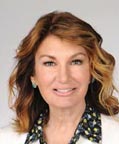
DR. JOY LAURER, PMHCNS BC, PSYCHIATRIC APRN
Not only is Dr. Joy Lauerer an assistant professor in the College of Nursing at MUSC, but, for the past 15 years, she has maintained her own practice of treating preschoolers to young adults with mental health issues. She lectures nationally on children’s behavioral health issues, and even has experience practicing at One80 Place, the homeless shelter in Charleston, where she was responsible for the mental health care of the children and families who lived there. Dr. Lauerer said that her favorite part of being a nurse is helping children and families find hope. “I love interacting with patients and their families,” she said. “It is so important to me that they find hope, find ways to solve their problems and develop strengths.” She also practices at Coastal Pediatrics, providing behavioral health care in a pediatric primary care setting. Dr. Lauerer gives great advice to anyone wanting to pursue nursing as a career. “Always work hard and develop great mentors,” she said. “And don’t forget to practice good self-care as you are the role models in the community.”
March/April 2017
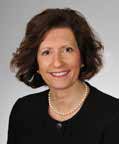
TERESA J. KELECHI, PH.D, RN, FAAN
The transfer of medical nursing knowledge from research to patient is paramount for Teresa Kelechi, professor and David and Margaret Clare Endowed Chair at MUSC. With a bachelor of science in nursing from Kent State University, a master of science in nursing from Case Western Reserve University and a Ph.D in nursing from the University of South Carolina, Kelechi has established herself as an expert in the field. “Having the ability to conduct research that helps patients manage symptoms associated with having skin ulcers is the inspiration to my profession,” she commented. Currently, Kelechi is affiliated with clinical practices where patients with lower leg problems such as venous insufficiency or diabetes are seen. She talks to them about symptoms and self-management, even inviting them to become part of ongoing studies. “My plans are to continue to conduct research for preventing and managing a variety of ulcers,” she said. “I also plan to continue teaching Ph.D nursing students about conducting research and mentoring junior nursing faculty.”
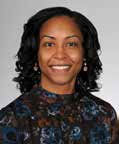
MICHAELA LEWIS, DNP, CPNP, CPN, CPEN
Michaela Lewis understands how the well-being of children is important to our collective future and the crucial role of nursing in that goal. After earning an associates and a bachelor of science in nursing from Gardner-Webb University, Lewis completed her education with a doctor of nursing practice at MUSC, where she continues to teach full-time.“As an instructor, I use knowledge gathered from research, current evidence-based guidelines and personal experience,” she said. “I serve as a mentor and resource for students as they enter the acute care setting and initiate interactions with pediatric patients and families.”Lewis feels strongly about her role in teaching young nurses to care for children.“I am a sieve through which caregivers of children may filter information and, with that information, make informed decisions,” she said. “Children, upon whom the future of our nation and world rest, deserve every advantage and opportunity.”
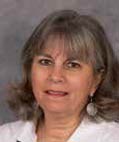
AMELIA (AMY) JOSEPH, PH.D, RN
A suggestion by her guidance counselor kindled Amelia Joseph’s career in nursing. After receiving her bachelor of science in nursing from Southern Connecticut State University, she finished her education in the Lowcountry, getting her masters in business administration from The Citadel and earning her Ph.D at the University of South Carolina. Since then, she has built an extensive career in nursing.“I’ve worked in a variety of different clinical settings, mostly as a nurse manager, and finished my career here in Charleston as an associate nurse executive,” she said.Throughout Joseph’s years as a nurse, she has made great efforts to care for patients individually and without judgment. “I believe that family, whatever that means to the patient, is an extension of the patient,” she explained. “I believe that you never treat a patient in a vacuum, but, rather, you treat the patient as well as his or her family.”Joseph is currently the department head for the Swain Department of Nursing at The Citadel.
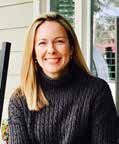
JILL DEATON, RN
While working for a company that manufactured hospital beds, Jill Deaton was inspired by studying how these beds prevented injury. She then decided to go back to school, attending Trident Technical College to earn an associates degree in nursing.“I wanted to be a part of that healing process,” she said. “I worked in a couple of hospitals and soon found my passion – home health nursing.”Deaton continues her mission today as an RN case manager for Amedisys Home Health, where she takes pride in changing the lives of her patients for the better.“Seeing my patients’ smiles when I walk in their door and knowing they feel comforted and reassured when I leave is the ultimate reward,” she pointed out. As for future goals, Deaton plans to concentrate her efforts on being an educator and assisting other nurses who choose to work in home treatment.

